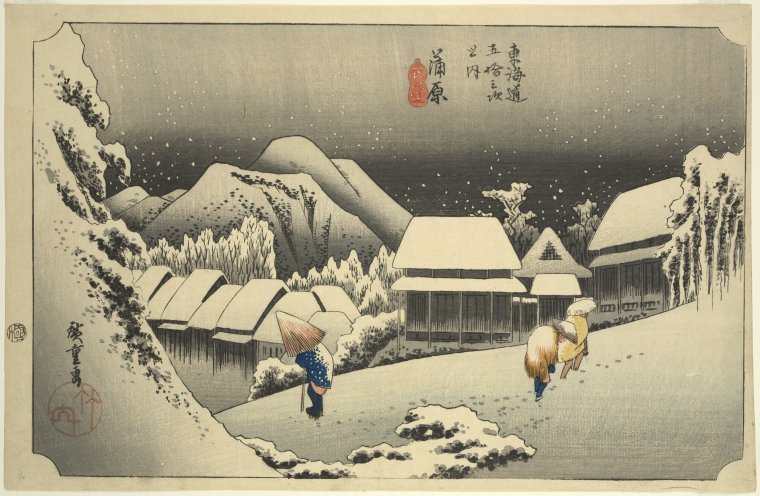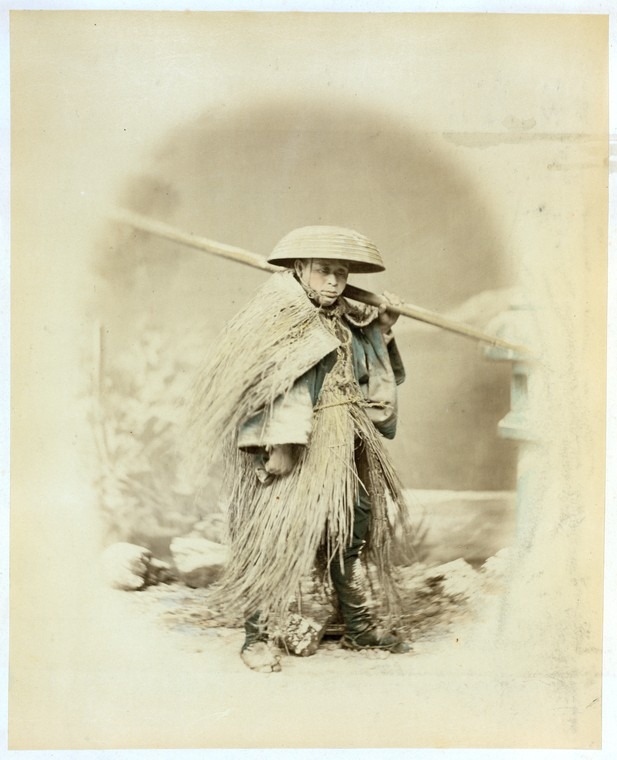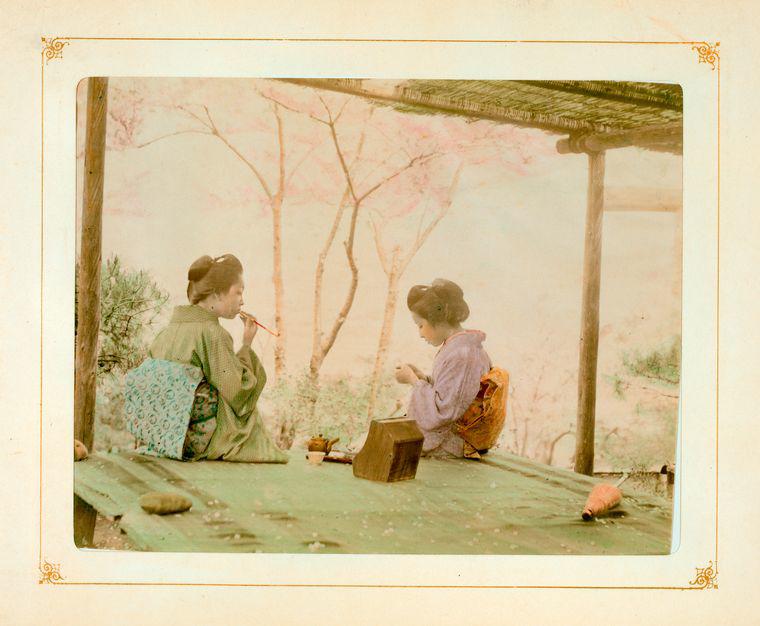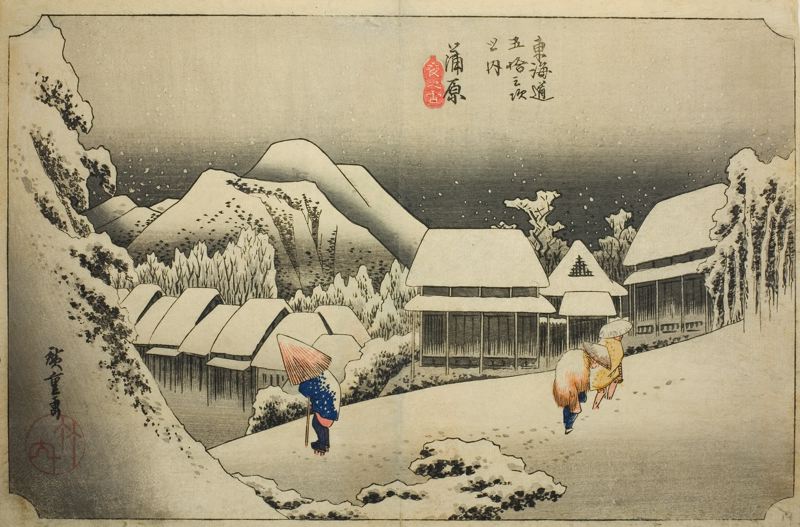
I love winter. The cold may be uncomfortable, but it is the night of the year. It calls us to stop and rest and reflect. Although, as the climate shifts, I’ve seen less of winter than I had in the past. Winter used to begin as early as late October in my hometown. Now winter as I define it–consistent cold and snow remaining on the ground for weeks–doesn’t come around until perhaps January. Most of the time, winter means mud and not snow. Before our modern heating systems and the climate shift we see, winter forced people to stop. The fields rested. Farmers repaired their equipment, made clothes, hunted, and rested. In the modern world, we don’t stop in winter, but perhaps we should. A season of stopping does the soul well.
Humans were formed by winter. After all, most of pre-recorded human history existed during the Earth’s Ice Ages. At least for those of us from the Northern Hemisphere, our bodies and minds were shaped by never-ending winter. Snow, icy wind, and cold link closely to our understanding of mortality. Perhaps this link is why so many like to avoid winter. The discomfort of the cold and the long darkness remind us too much of our mortality. Yet this avoidance also prevents us from truly living. As Daidoji Yuzan wrote:
When death is held constantly in mind and this world is seen in its triviality, the greed in one’s heart will weaken as a matter of course, and the squalid tempers of avarice and selfishness will not so much intrude themselves. For this reason it is said that even one’s character will improve.
The loneliness, silence, and cold of yesteryear’s winters appear throughout Japanese poetry. Some poems look toward spring. Others relish the freeze and the melancholy winter can bring. I’ve also included several jisei–death poems–in this collection.
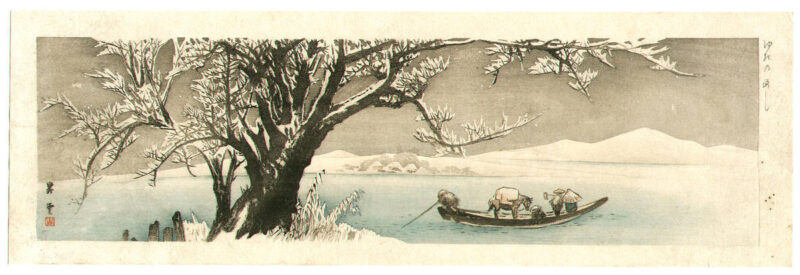
The underpass
was jammed
with people
rank with the odor
of wet evening snow.
– Sataro Sato
In my suffering
I find
loquat blossoms finished.
Winter moves
toward a conclusion.
– Sataro Sato
Spring come again, after moody
Wintering indoors, I left the hermitage
With begging bowl. The village children
Played in long-awaited sun. I bounced
Ball with them, chanting–
One-two-three-four-five-six-seven.
They bounced while I sang, they sang
While I bounced. So I’ve wasted,
Joyfully, a whole spring day.
–Ryokan
Mount Fuji’s melting snow
is the ink
with which I sign
my life’s scroll,
“Yours sincerely.”
–Kashiku
I measure
my loneliness
by the daily descent
of winter
sunbeams.
– Sataro Sato
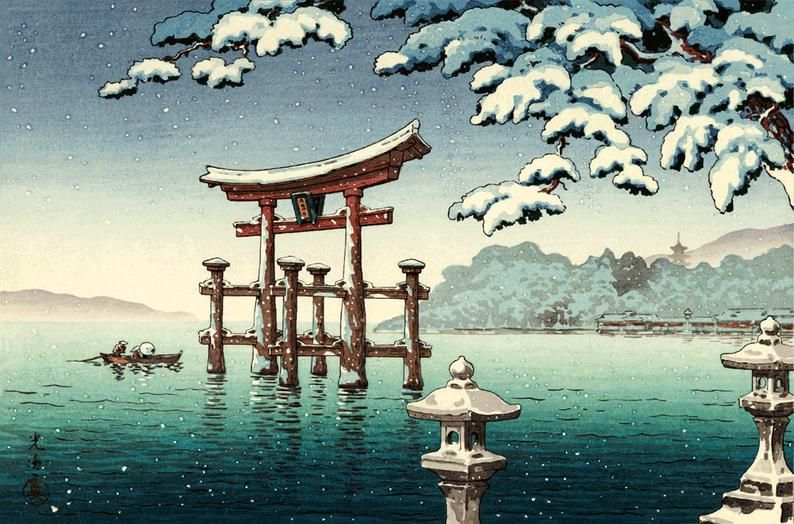
The longest winter night:
plum petals fall and finally
the western moon.
–Bankoku
Neither old regret
nor new grief
troubles this simple old man
basking
in the winter garden.
– Sataro Sato
The burden of snow,
The wild blast of the storm-wind,
Give dignified grace
To the pine-tree that bravely
Through the strife so long standeth.
– Emperor Meiji
Those there be who toil,
Treading the frozen midnight,
While at ease I sit
Warm through the long night-hours
Close to my braiser fire.
– Emperor Meiji
Bah! What fantastic snow-flakes, ch,
Dancing merrily, ha! ha! ha!
Lo, their tiny feet raising so!
Death is sweet, to be sure,
Laugh they go to death,
What delicious teeth, ha! ha! ha!
Suppose we die together, ch,
With the snow dying upon a pond?
What a fantastic end, ha! ha! ha!
What a fantastic end to die
In the dying music of ancient love!
Behind the snow and music die!
– Yone Noguchi
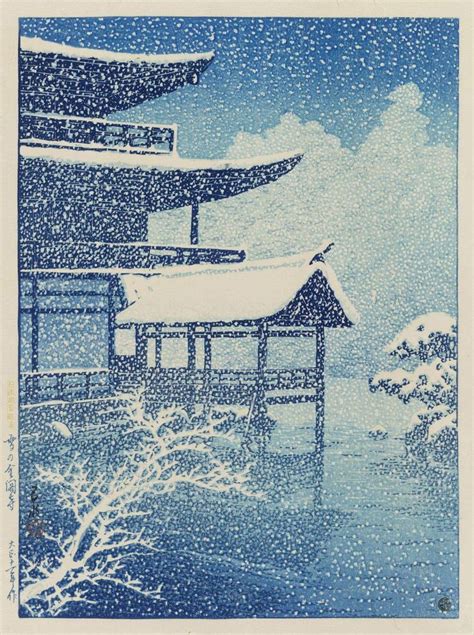
On slopes
of Mount Kugami
holed for winter–
day after day the snow
goes on falling
till trails show no sign
of a soul passing by
and no word comes
from people at home:
so I shut my gate
on the drifting world
and here with this one thread
of clear water from the crags,
straight as the string plucked by the carpenters of Hida,
I keep myself alive
through another year,
another today
I go on living.
– Ryokan
Chrysanthemums
dazzle the ground
while winter sun
seems to stun the sky
audibly.
– Sataro Sato
This one poem
people won’t dispute–
the winds of winter.
– Chowa
Today, then, is the day
the melting snowman
is a real man.
– Fusen
I came to a big pond
in winter twilight
by an imperial villa.
Down on the beach the tide
curled and collapsed.
– Sataro Sato
From now on
white snow I know will
go on piling up–
who’d come tramping through it
to call on me?
– Ryokan
Autumn’s warmth
lingered as winter came on
I went to the shore
and bowed farewell
to the departing sun.
– Sataro Sato
Mingling with the wind
the snow comes falling;
mingling with the snow
the wind comes blowing;
by banked coals
I stretch my legs,
idle, idle,
in this grass hut
a shut-in,
and counting, find
that the second month too
like a dream
has come and gone
– Ryokan
Though frosts come down
night after night,
what does it matter?
they melt in the morning sun.
Though the snow falls
each passing year,
what does it matter?
with spring days it thaws.
Yet once let them settle
on a man’s head,
fall and pile up,
go on piling up–
then the new year
may come and go,
but never you’ll see them fade away
– Ryokan
Dark of winter, eleventh month,
rain and snow slushing down;
a thousand hills all one color,
ten thousand paths were almost no one goes.
Past wanderings all turned to dreams;
grass gate, its leaves latched tight;
through the night I burn chips of wood,
quietly reading poems by men of long ago.
– Ryokan
A parting word?
The melting snow
is odorless
–Bokusui
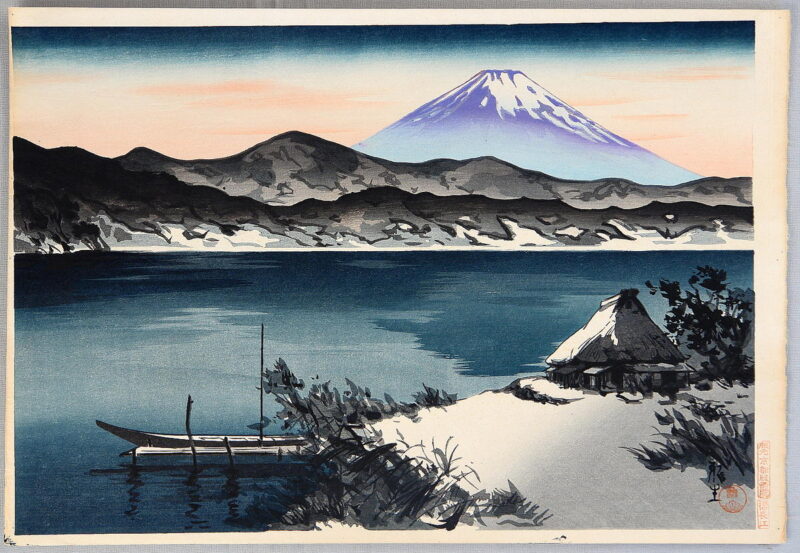
Stumble,
fall,
slide down the snow slope.
–Getsurei
Chrysanthemums were yellow
or were white
until the frost.
–Godo
From deep in my heart
how beautiful the snow
clouds in the west.
–Issho
If I must die
then let me die before
the winter comes.
–Kafu
The moon departs:
frost falls upon the
morning glory.
–Kato
Bitter winds of winter–
but later, river willow,
open up your buds.
–Senryu
Fickle winter shower:
up the road comes
an umbrella
–Shinseki
One moon–
one me–
snow-covered field path.
–Shofu
References
Hoffmann, Yoel (1986) Japanese Death Poems: Vermont: Tuttle Publishing.
Lombard, Frank (1915) Imperial Japanese Poems of the Meiji Era, Kyoto.
Noguchi, Yone (1921) Selected Poems of Yone Noguchi, Boston: The Four Seas Company.
Sato, Sataro (2000) The Spoon Clinks: 100 Tanka.
Stryk, Lucian (1987) Zen Poems of China & Japan: The Crane’s Bill, New York: Grove Press.
Watson, Burton (1977) Ryokan: Zen Monk-Poet of Japan: New York: Columbia University Press.
